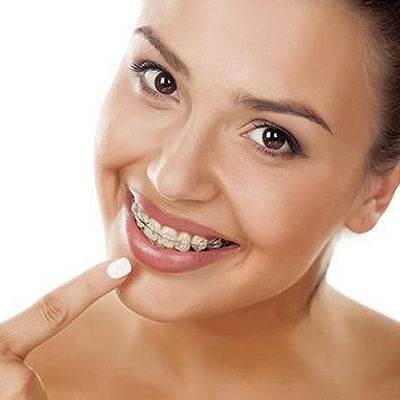Braces for Teens: What Dubai Parents Need to Know
- aliza khan
- Oct 12, 2024
- 4 min read
Orthodontic treatments, especially braces, are a common solution for teenagers to correct misaligned teeth and improve oral health. Parents in Dubai often seek advice from experienced Orthodontists to understand the best options for their teens. As Dubai continues to be a hub for advanced orthodontic care, it’s essential to understand the types of braces available, the treatment process, and what parents and teens should expect.
Why Teens Might Need Braces:
Teenagers often require braces for several reasons. Common orthodontic problems like crooked teeth, overbite, underbite, and spacing issues can affect oral health and self-confidence. Left untreated, these issues can lead to more significant problems, including difficulty in cleaning teeth, gum disease, and even jaw pain. Early intervention by orthodontists ensures that these problems are corrected, preventing future complications.
Parents in Dubai can consult with orthodontists to get a thorough assessment of their teen’s dental structure, helping to decide the best treatment plan.
Types of Braces for Teens:
When it comes to braces for teens, parents have several options to consider. The choice depends on the complexity of the teen’s orthodontic issue, their personal preferences, and budget.
Traditional Metal Braces: These are the most common type of braces. Made from high-grade stainless steel, they consist of brackets and wires that gradually move teeth into place. Today’s metal braces are smaller and more comfortable than in the past, making them a reliable option.
Ceramic Braces: These braces are similar to metal ones but use clear or tooth-colored brackets, making them less noticeable. While they are a popular choice for teens concerned about aesthetics, ceramic braces can be more fragile and require careful maintenance.
Lingual Braces: Lingual braces are placed on the inside of the teeth, making them virtually invisible from the outside. While this option is great for teens who want discreet treatment, lingual braces can be more challenging to clean.
Clear Aligners: Clear aligners, like Invisalign, are a popular alternative to traditional braces. These removable trays are custom-made to fit the teen’s teeth and are nearly invisible. However, clear aligners are only suitable for mild to moderate orthodontic issues.

The Treatment Process:
The orthodontic treatment process for teens typically begins with an initial consultation with an orthodontist. During this visit, the orthodontist will evaluate the teen’s dental condition using X-rays, digital scans, and a thorough examination. Based on the assessment, a customized treatment plan will be created.
Once braces are applied, teens will need regular check-ups with the orthodontist to monitor progress and make adjustments. These appointments are crucial to ensure that the teeth are moving as expected and to address any issues with the braces.
How Long Do Teens Need Braces?
The length of time teens need to wear braces depends on the complexity of their case. On average, treatment can last anywhere from 18 months to three years. For more severe cases, the treatment may extend beyond this range. Compliance with the orthodontist’s instructions, including attending regular appointments and maintaining good oral hygiene, can impact the duration of the treatment.
Clear aligners may offer a faster solution for mild cases, but they still require careful adherence to wearing the aligners for the recommended time each day.
The Importance of Oral Hygiene During Treatment:
Maintaining proper oral hygiene is crucial for teens wearing braces. Braces, whether metal or ceramic, can trap food particles and plaque, increasing the risk of tooth decay and gum disease. Parents should ensure that their teens are brushing and flossing properly, especially around the brackets and wires. Many orthodontists recommend using specialized tools, such as interdental brushes and floss threaders, to make cleaning easier.
Teens with clear aligners should also practice good oral hygiene by brushing after meals before putting the aligners back in. Aligners must be cleaned regularly to prevent bacteria build-up.
What to Expect During the Adjustment Period:
When braces are first applied, or when adjustments are made, teens may experience some discomfort or soreness. This is a normal part of the process as the teeth are being gradually repositioned. Over-the-counter pain relievers and orthodontic wax can help alleviate discomfort. Most teens adapt to the sensation of braces within a few days.
Parents should also be prepared for dietary changes. Teens with braces need to avoid hard, sticky, or chewy foods that can damage the brackets or wires. Soft foods like yogurt, mashed potatoes, and smoothies can be comforting during the first few days after an adjustment.
Costs and Financing Options in Dubai:
The cost of braces for teens varies depending on the type of braces chosen and the length of treatment. In Dubai, parents can expect to pay between AED 10,000 and AED 25,000 for orthodontic treatments. Metal braces are usually the most affordable, while ceramic and lingual braces, as well as clear aligners, tend to be more expensive.
Many orthodontists in Dubai offer flexible payment plans, making it easier for families to afford treatment. Parents should discuss all options, including insurance coverage and payment plans, during the initial consultation.
Psychological and Social Benefits of Braces:
While teens may initially feel self-conscious about wearing braces, the long-term benefits far outweigh any temporary discomfort. Orthodontic treatment can significantly boost a teen’s self-esteem by improving the appearance of their smile. A healthy, aligned smile not only enhances appearance but also promotes better oral health in the long run.
Teens with straight teeth are more likely to maintain good oral hygiene, which can lead to a lifetime of healthy teeth and gums. By investing in braces during adolescence, parents are helping their teens avoid more serious dental issues as they grow older.
Conclusion:
For Dubai parents, understanding the options and process of orthodontic treatment is essential in making the right decision for their teen’s dental health. Consulting with an experienced orthodontist can help clarify any concerns and ensure that the treatment plan is tailored to the teen’s specific needs.



Comments